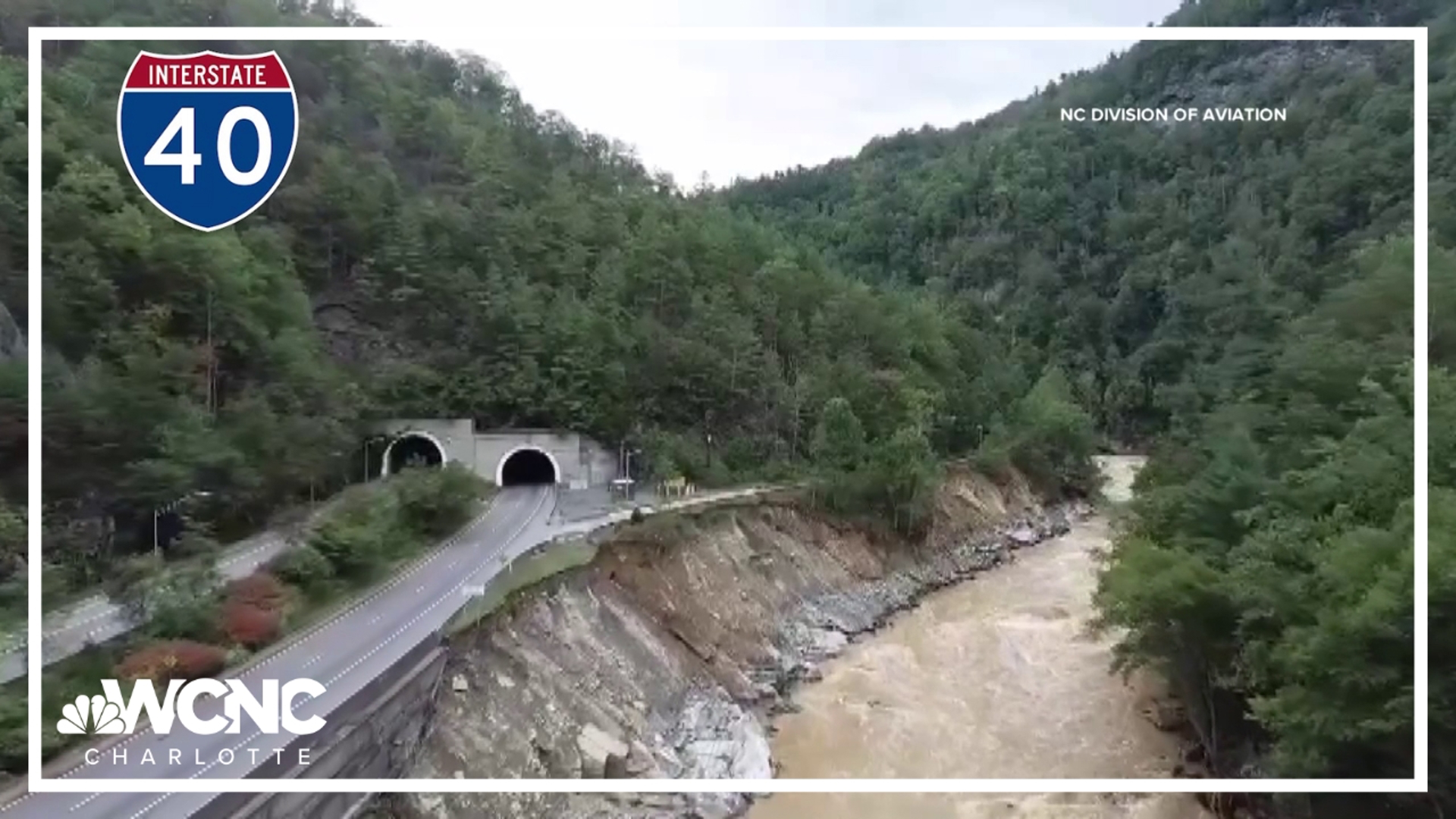GRANDFATHER, N.C. — In the aftermath of Helene, the entire stretch of the scenic Blue Ridge Parkway in North Carolina is closed, according to the National Park Service.
"Closures will remain in place until staff can safely assess the park and clear any storm damage," the National Park Service, which operates the roadway, said on its website.
The National Park Service has deployed its Eastern Incident Management Team to clear debris from the roadway. In total, 99 National Park Service employees from 22 states and the District of Columbia are working on recovery efforts along the parkway.
There is no estimated date for reopening the parkway.
The Blue Ridge Parkway runs 469 miles through North Carolina and Virginia. It transitions to US 411 in Cherokee, North Carolina. US 411 continues from western North Carolina through the Great Smoky Mountains National Park into Tennessee. The National Park Service reopened that stretch of US 411 to traffic on Wednesday. US 411 provides an alternative to drives in the absence of Interstate 40, which has remained closed between the two states since the storm. However, commercial vehicles are prohibited from using US 441.
Across western North Carolina, an estimated 400 roads are closed. That includes the closure of over 100 bridges. The North Carolina Department of Transportation knows of at least 700 locations of reported roadway damage. A spokesperson warned the numbers were likely to rise as communication is restored with isolated communities.
The idea to construct the scenic Blue Ridge Parkway dates back to 1933. Portions of the construction was funded by President Franklin Delano Roosevelt's New Deal public works programs.
President Joe Biden will survey the devastation in North and South Carolina on Wednesday as rescuers continue their search for anyone still unaccounted for after Hurricane Helene caused catastrophic damage across the Southeast and killed at least 166 people.
Many residents in both states were still without running water, cellular service and electricity as floodwaters receded and revealed more of the death and destruction left in Helene’s path.
Helene, one of the deadliest storms in recent U.S. history, knocked out power and cellular service for millions. More than 1.2 million customers still were in the dark early Wednesday in the Carolinas and Georgia. Some residents cooked food on charcoal grills or hiked to high ground in the hopes of finding a signal to let loved ones know they are alive.
On Tuesday, cadaver dogs and search crews trudged through knee-deep muck and debris in the mountains of western North Carolina looking for more victims. At least 57 people were killed in Buncombe County alone, home to city of Asheville, a tourism haven known for its art galleries, breweries and outdoor activities.
The Associated Press contributed to this story

